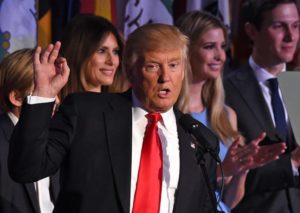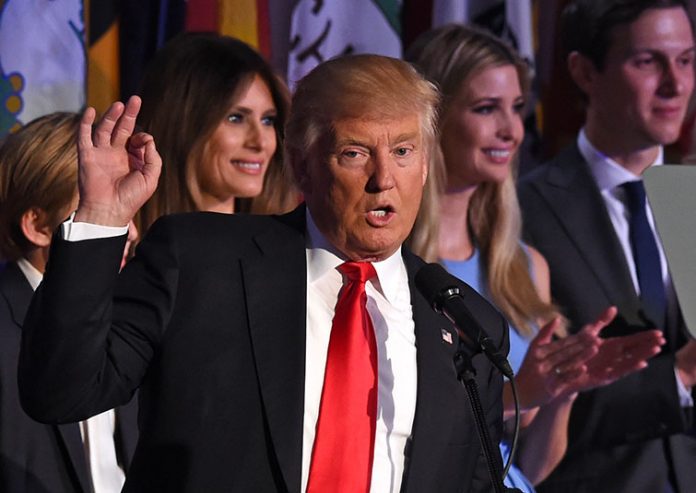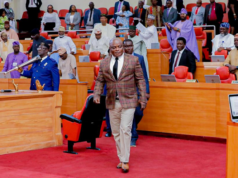 With the mainstream media almost uniformly hostile toward him, Donald Trump rallied supporters during the presidential campaign by delivering his message on Twitter and a loose network of alternative news sites.
With the mainstream media almost uniformly hostile toward him, Donald Trump rallied supporters during the presidential campaign by delivering his message on Twitter and a loose network of alternative news sites.
The President-elect’s ability to circumvent the main news channels to reach and energize his audience became a key factor in his victory, analysts say.
“Trump had a way of taking to Twitter and could literally change the narrative because he had such a large following,” said Alan Rosenblatt, a digital consultant and strategist at Lake Research Partners and Turner4D who opposed Trump.
The real estate billionaire kept momentum even as major news organizations unearthed embarrassing episodes about his past, including on his finances and sexual conduct.
As mainstream media stepped up their investigations, going so far as to call him a “liar,” Trump was able to sustain a counter-narrative on social media used by conservative, or “alt-right,” news sites friendly to the Republican candidate.
A network of social media supporters amplified the Trump message, not only reinforcing his vision but also actively seeking to counter and quash messages from anti-Trump forces.
“It’s organized digital bullying,” Rosenblatt said.
“They would focus in on progressive Democratic tweeters and barrage them and abuse them to try to incite an inappropriate response.”
– ‘Alternate reality’ –
The onslaught of pro-Trump messages on those platforms allowed him to survive the negative coverage, said Gabriel Kahn of the University of Southern California’s Annenberg School and a former newspaper correspondent.
“It became possible for him to construct an alternate narrative, I would say an alternate reality,” he said.
“In this way, you have untruths and falsehoods that transit through our media ecosystem and become a tidal wave.”
Trump’s message echoed through the alt-right media that supported his agenda, including Breitbart News, whose chairman Stephen Bannon served as chairman of the candidate’s campaign organization.
As a result, fact-checking by traditional media — which revealed Trump’s massive penchant for exaggeration and falsehood — had less impact than might have been expected.
As online media outlets on both the left and right grow increasingly ideologically driven, the social discourse democracies require becomes limited, Rosenblatt said.
“The health of democracy depends on people being exposed to both sides of an issue,” he said.
“These ‘filter bubbles’ and the idea of customized home pages and news feeds I think hurts democracy. It means people are not debating ideas to arrive at a consensus.”
The mainstream media, important for promoting that discourse, has also been seen as failing, Rosenblatt said.
A Gallup survey this year found just 32 percent had confidence in the media’s ability “to report the news fully, accurately and fairly.”
There is a growing sentiment among conservatives that “the mainstream press is left-of-center and that the conservatives should have their own platforms,” Rosenblatt said.
– Faking on Facebook –
Many Trump supporters and conservatives turned to Twitter, Facebook and other social media to spread their messages and counter the news in traditional outlets.
But much of the news on Facebook was fake, media watchers pointed out, compromising the platform as well as confidence in the media.
One local official shared news on Facebook with headlines such as “Hillary Clinton Calling for Civil War If Trump Is Elected” and “Pope Francis Shocks World, Endorses Donald Trump for President,” said Joshua Benton, director of Harvard University’s Nieman Journalism Lab.
“These are not legit anti-Hillary stories,” he wrote in a blog post. “These are imaginary, made up, frauds. And yet Facebook has built a platform for the active dispersal of these lies — in part because these lies travel really, really well.”
The dissemination of such fake news was a key factor in Trump’s win, New York Magazine editor Max Read argued.
“The most obvious way in which Facebook enabled a Trump victory has been its inability (or refusal) to address the problem of hoax or fake news,” he wrote.
“Of course, lies and exaggerations have always been central to real political campaigns; Facebook has simply made them easier to spread.”
Critics say Facebook should act like a media company and actively screen news, something the social media company acknowledged this week.
“We understand there’s so much more we need to do, and that is why it’s important that we keep improving our ability to detect misinformation,” a Facebook statement to the website TechCrunch said.
“We’re committed to continuing to work on this issue and improve the experiences on our platform.”







